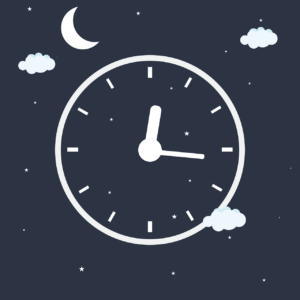Got a flu shot a month ago, which means that the dozen-or-so flu symptoms I’ve been laid out with this week aren’t flu, so hurray for that.
month ago, which means that the dozen-or-so flu symptoms I’ve been laid out with this week aren’t flu, so hurray for that.
The cocktail of fever, wheezing, aches and Nyquil has given me some doozies of nightmares like you might expect from a child first encountering Doctor Who: aliens, exploding planets, etc. Really not the kind of dreaming I’m used to.
Then, last night, in the middle of one of these nightmares, I found myself wondering if I could somehow bring down the anxiety level by scoring it with soothing music. I made up some overlapping, descending arpeggios in various tempi to accompany my latest cosmic cataclysm, starting with a harp, then joined by glockenspiel, vibraphone and piano. Soon the nightmare was gone, and I was left with a peaceful shimmer.
Would be great if I could get this to work on a regular basis. And who knows, maybe a patent?

This brings to mind a recent dilemma. After happening to mention a famous quote from Liberace in the liner notes for my new album, Celestial Crocodile and Honu Morning, I became curious to investigate his music, discovering there was much more there than we are led to believe. Arpeggios and shimmer are certainly part of his milieu. My theory is that Liberace actually influenced some important musicians by combining classical and popular forms in a manner that masked boundaries. Intellectually, he was absolutely brilliant, reflected in some remarkably creative arrangements.
And homophobia is alive and well. Myself, I happen to be heterosexual, but when I attempted to ask some questions of a jazz musician who he performed with, I was quickly shut down, and then a prior invitation for us to meet in person was rescinded.
Few things make me angrier then when people are discriminated against for ethnicity, religion or sexual orientation. I’ve been working on an essay about the music of Liberace, and hope to complete it in the next month or so.
One wonderful element of music is how there are so many different forms to fit whatever mood we may be in. Liberace created his own musical universe, and once in a while, admittedly not that often for myself, his style is completely charming and engaging, including his singing. Sometimes Liberace’s music goes so far in his unique direction that it actually enters the realm of the avant garde.
At the conclusion of this, his last interview, there is one of the most lovely interpretations of Silent Night I’ve ever heard, despite him being quite ill at the time, leaving us several months later.
https://youtu.be/8ZdjtYGYJyo
Its also remarkable to discover Liberace was born the same year of 1919 as another Italian American virtuoso pianist, Lennie Tristano, with the two of them representing extreme ends of the piano music spectrum.